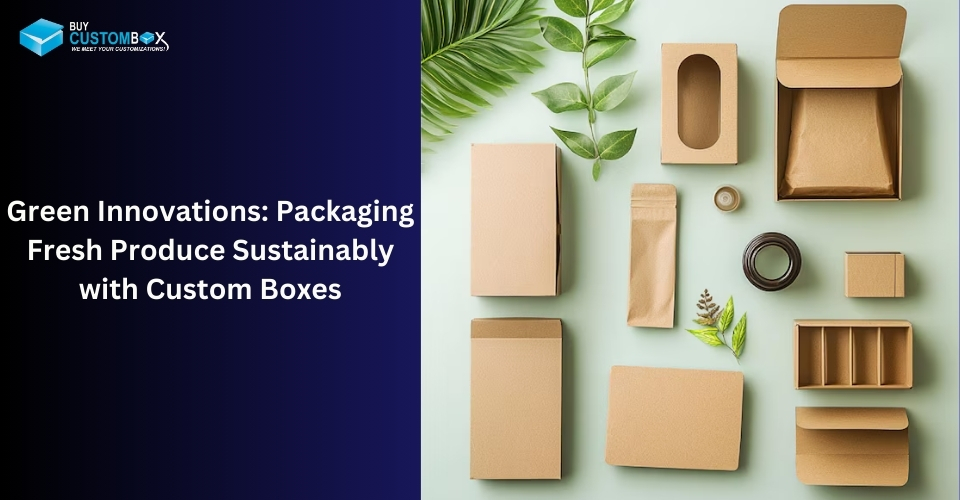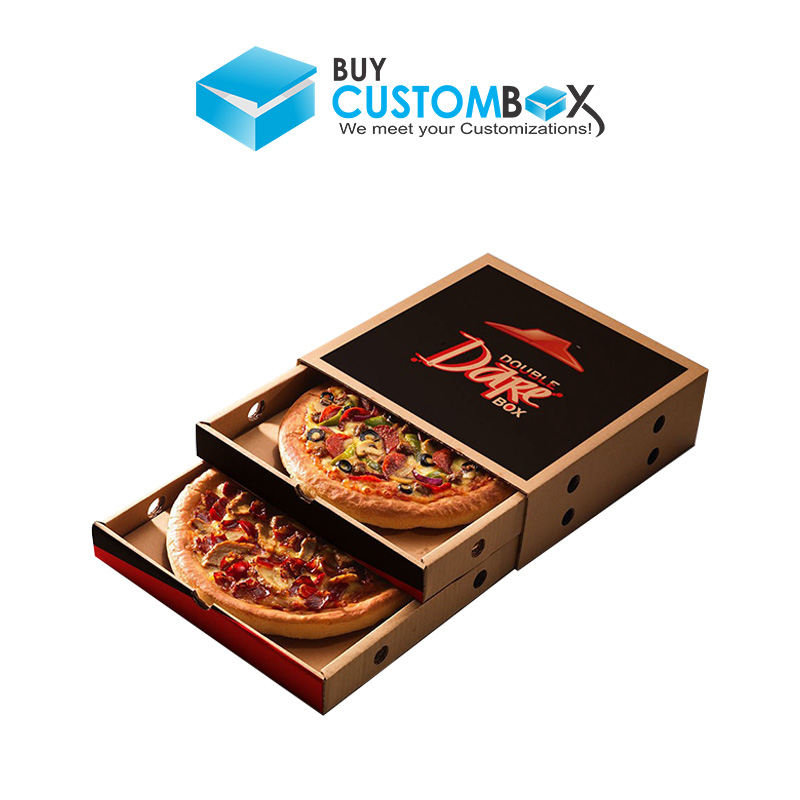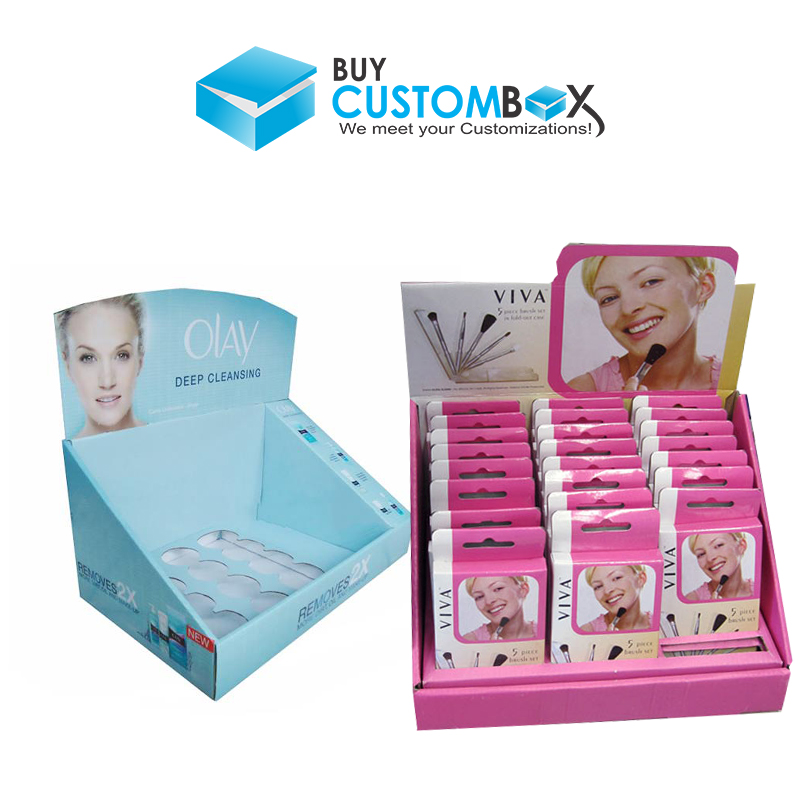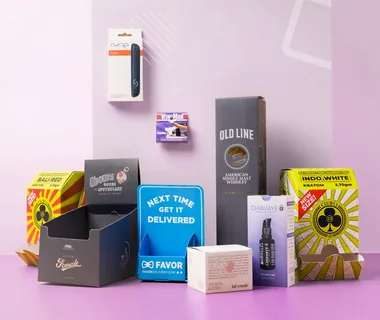In the modern world, sustainability has become a critical concern across industries, especially in the food sector. As the global population grows, the demand for fresh produce increases, and so does the environmental impact of its packaging. Traditionally, packaging materials used for fresh produce such as plastic wrap, Styrofoam, and non-biodegradable materials have contributed significantly to environmental pollution.
However, with growing awareness and advances in eco-friendly technologies, the industry is witnessing a shift towards sustainable packaging solutions. Custom boxes, designed with innovative, eco-conscious materials, are emerging as a leading choice for packaging fresh produce in a way that minimizes waste, reduces carbon footprints, and ensures product freshness.
This article explores the green innovations in packaging, focusing on how custom boxes offer a sustainable solution for the fresh produce industry.
The Environmental Impact of Conventional Packaging
Conventional packaging for fresh produce, such as plastic bags, plastic wraps, and foam trays, often ends up in landfills, contributing to plastic pollution. According to a 2021 report from the Ellen MacArthur Foundation, over 8 million tons of plastic waste end up in the oceans every year. This has a profound impact on marine life, with plastics causing significant harm to aquatic animals and ecosystems. The fresh produce industry, with its vast packaging needs, has historically relied on non-recyclable materials that take hundreds of years to decompose.
Furthermore, the production of these materials consumes energy and raw resources, contributing to climate change. For instance, plastic packaging is made from petrochemicals, which are derived from fossil fuels, leading to the depletion of natural resources and the release of greenhouse gases during production. This highlights the need for sustainable alternatives that not only reduce waste but also lower the carbon footprint of packaging.
The Role of Custom Boxes in Sustainable Packaging
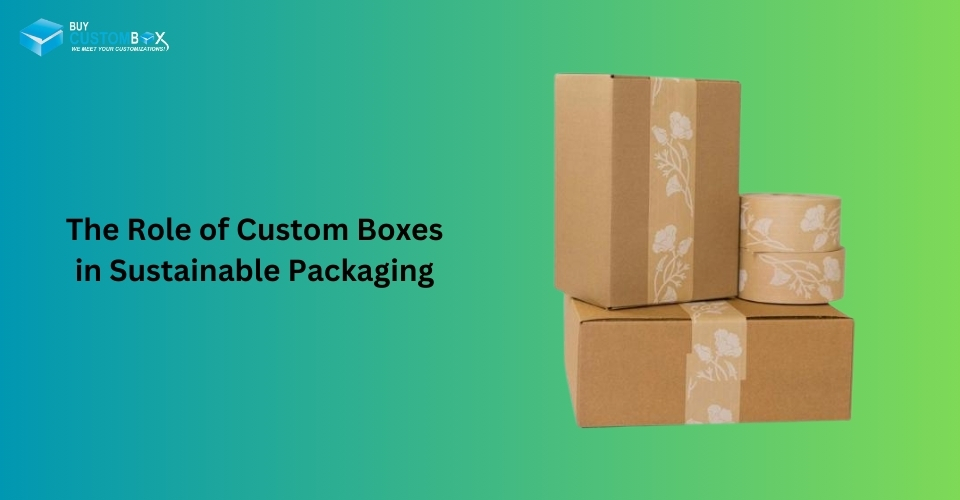
Custom boxes offer a promising solution for sustainable packaging, especially in the fresh produce sector. These boxes can be tailored to fit the unique needs of different types of produce, ensuring protection and freshness while minimizing the use of harmful materials. Several green innovations in the design, materials, and manufacturing of custom boxes make them an attractive alternative to traditional packaging options.
1. Biodegradable and Compostable Materials
One of the most significant innovations in custom box packaging is the use of biodegradable and compostable materials. These materials are derived from natural sources like paper, cardboard, cornstarch, or plant-based polymers, and they break down more easily than conventional plastics. Unlike plastic, which can remain in the environment for hundreds of years, biodegradable boxes decompose within months when exposed to environmental conditions.
Materials like kraft paper, recycled paperboard, and molded pulp are commonly used in custom packaging for fresh produce. These materials not only offer excellent protection against damage but are also highly sustainable. Molded pulp, for example, is made from recycled paper or natural fibers, offering a lightweight, eco-friendly alternative to plastic trays. Moreover, biodegradable custom boxes reduce the overall environmental impact by reducing the need for new raw materials and minimizing waste.
2. Recyclable and Reusable Materials
Another significant innovation in sustainable packaging is the use of recyclable and reusable materials. Custom boxes made from high-quality, recyclable cardboard or paperboard can be repurposed multiple times before they eventually break down. These boxes can be easily collected, recycled, and turned into new packaging materials, reducing the need for new production and minimizing waste.
Furthermore, custom packaging can be designed with durability in mind, encouraging reuse. For example, sturdy cardboard boxes can be used multiple times for transporting fresh produce, further extending their lifecycle. This shift toward recyclable and reusable materials not only helps reduce waste but also promotes a circular economy, where products and materials are kept in use for as long as possible.
3. Reduced Packaging Material Use
One of the key principles of sustainable packaging is reducing the amount of material used. Custom boxes can be designed to fit the exact size and shape of the produce being packaged, reducing the need for excess materials and packaging. For example, custom-designed boxes that snugly fit fresh fruits and vegetables can help eliminate the need for additional plastic wrapping, foam inserts, or other forms of padding.
By minimizing packaging materials, custom boxes reduce waste, lower transportation costs, and reduce the environmental impact associated with the production, transportation, and disposal of packaging. Additionally, the reduced use of packaging means a more efficient use of resources, contributing to the overall sustainability of the fresh produce industry.
4. Innovative Design for Freshness Preservation
Custom box designs can also be optimized to maintain the freshness and quality of produce while reducing the need for traditional packaging materials. The design of the box can include features such as ventilation holes, moisture-wicking layers, and built-in dividers to keep the produce fresh and protected during transportation.
For example, perforated cardboard boxes can allow airflow, reducing moisture buildup and preventing mold or spoilage. In addition, eco-friendly coatings or linings can be used to maintain the freshness of produce while still being biodegradable or recyclable. These innovative features reduce the need for additional preservatives or harmful chemicals, ensuring that the produce stays fresh without relying on unsustainable packaging materials like plastic.
5. Printing with Eco-Friendly Inks
The environmental impact of packaging isn’t limited to the materials used; it also includes the printing processes involved. Traditional printing methods often use toxic inks that contain harmful chemicals, which can leach into the environment when disposed of. However, custom boxes for fresh produce are increasingly being printed with eco-friendly inks that are derived from natural, plant-based sources or water-based formulations.
These inks are non-toxic, biodegradable, and much less harmful to the environment. By using these inks, companies can ensure that their packaging is not only sustainable in terms of materials but also in terms of the printing process. This reduces the overall environmental impact of packaging production and ensures that the entire lifecycle of the packaging is eco-friendly.
6. The Circular Economy of Custom Box Packaging
The circular economy model is based on the idea that resources should be reused and recycled as much as possible. Custom boxes fit perfectly into this model. By using recycled materials for manufacturing custom boxes, fresh produce packaging can be part of a continuous loop where old boxes are reused and turned into new packaging.
This approach reduces the demand for virgin materials and helps conserve natural resources. Additionally, custom boxes made from recycled materials reduce the carbon footprint associated with the production of new packaging. As more companies adopt circular economy principles, custom box packaging will play an increasingly significant role in reducing waste and promoting sustainability in the fresh produce sector.
The Benefits of Sustainable Custom Box Packaging for Fresh Produce
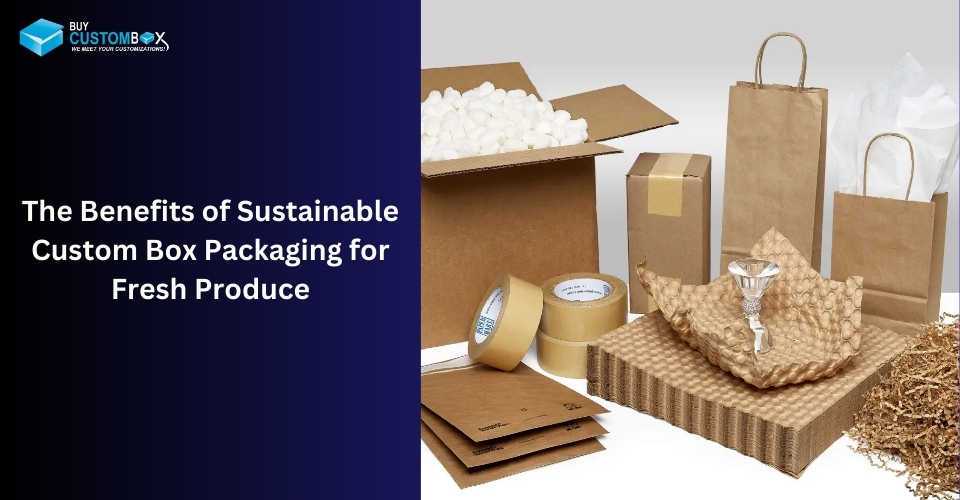
The adoption of custom boxes made from sustainable materials offers numerous benefits for both the environment and the fresh produce industry.
- Reduced Environmental Impact: By using biodegradable, recyclable, and reusable materials, custom box packaging reduces the environmental impact associated with traditional packaging options like plastic and Styrofoam. This helps to combat pollution and minimize landfill waste.
- Cost Savings: Sustainable packaging solutions, particularly those made from recycled materials or designed to reduce material use, can lead to significant cost savings in the long term. These savings come from reduced raw material costs, lower transportation expenses due to lighter packaging, and reduced disposal fees.
- Improved Brand Image: As consumers become more environmentally conscious, they are increasingly drawn to brands that prioritize sustainability. By adopting eco-friendly custom box packaging, fresh produce companies can enhance their reputation, build consumer trust, and differentiate themselves in a competitive marketplace.
- Enhanced Freshness and Protection: Custom boxes can be designed specifically for the type of produce being packaged, ensuring optimal freshness and protection during transportation. This reduces food waste and improves the overall quality of the product.
- Compliance with Regulations: Many countries and regions are introducing stricter regulations on packaging waste and sustainability. By switching to sustainable packaging options like custom boxes, companies can stay ahead of regulatory requirements and ensure compliance with environmental standards.
Conclusion
Green innovations in packaging, particularly the use of custom boxes, are revolutionizing the fresh produce industry by offering a sustainable alternative to traditional packaging materials. Custom boxes made from biodegradable, recyclable, and reusable materials help reduce waste, conserve resources, and minimize the carbon footprint associated with packaging. By embracing these sustainable practices, companies can protect the environment, improve the freshness of their products, and enhance their brand image, all while contributing to a more sustainable future for the food industry.


